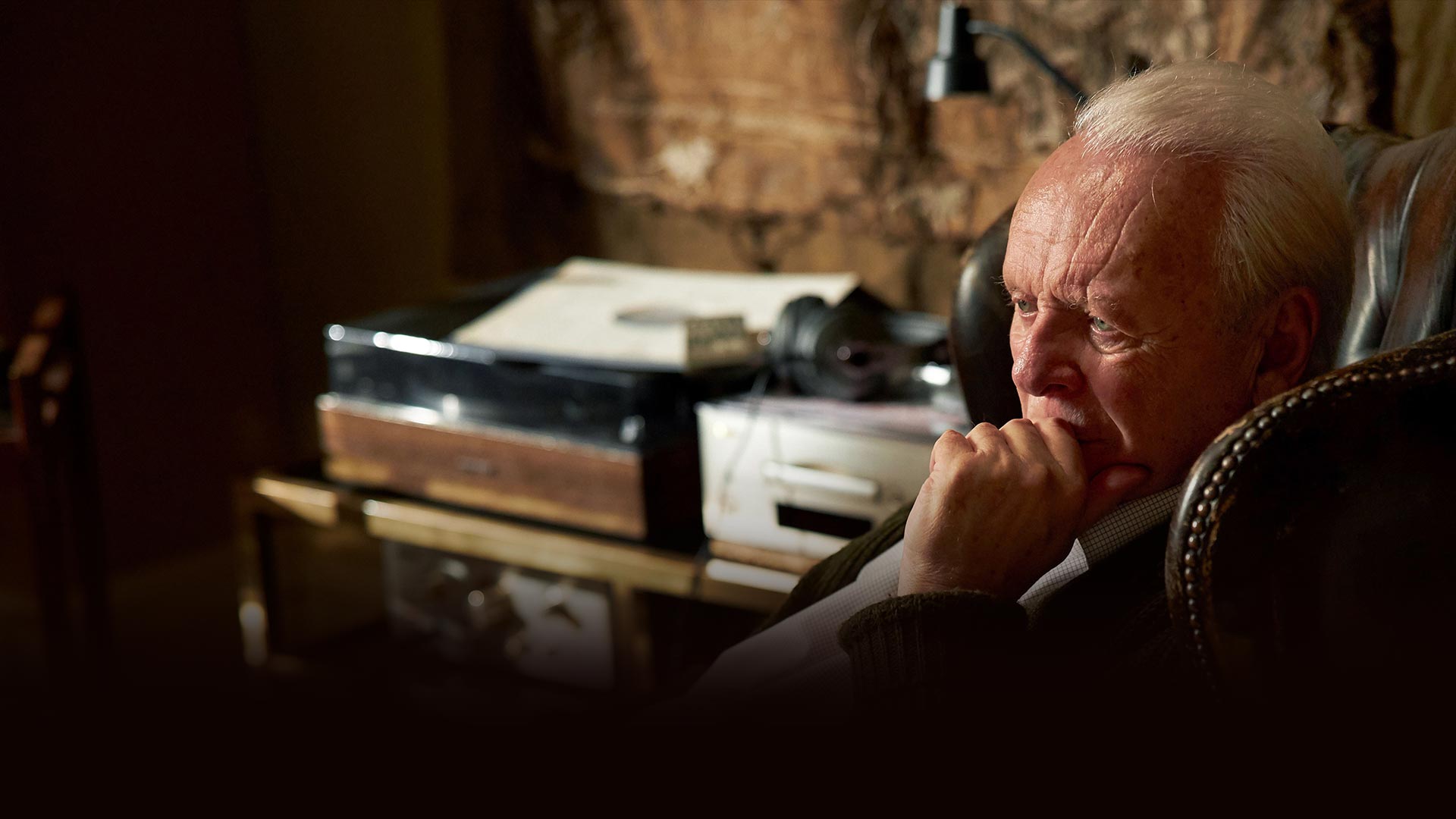The masterstroke of the dementia drama The Father, co-adapted by director and playwright Florian Zeller and the great Christopher Hampton, is one of perspective. A byzantine puzzle about an octogenarian in mental decline, it puts us directly in senility’s way courtesy of a sterling Anthony Hopkins, who etches a profound, first-person evocation of the confusion, terror and sorrow of the afflicted. It also takes us up-close to the painful process of coping with an aged loved one slowly, surely slipping away.
Essentially a two-hander between a stricken father and his exasperated adult daughter, Hopkins and Oscar-winner Olivia Colman begin the picture in crisis, Anne (Colman) summoned to Anthony’s (Hopkins) London flat concerning a missing watch, which he’s certain has been stolen by a former nurse. He is alarmed to learn that Anne is planning a move to Paris with a new boyfriend, perhaps partly an escape from the consuming responsibility she has assumed in lieu of placing her father in a full-time care facility.
There’s a long movie tradition of pictures about a family member’s waning hours, but The Father eschews the usual histrionics of disease dramas in favor of a cerebral game of cat and mouse with an unreliable narrator; in this case, the self. Hopkins, expectedly, is towering. To witness his Shakespearean turn is to see a titan in abject confusion, and heartbreak.
Into this dynamic come a youthful, bright nurse (Imogen Poots) and Anne’s longtime husband (Rufus Sewell), who appear and disappear; we cannot know what is coming next because the narrative, told from Anthony’s perspective, withholds objective reality. Scenes repeat, sometimes with different actors, and his demeanor shifts on a dime (often in the same scene), from pleasant to raging to fearful.
The novel concept here is that Anthony’s perception of unfolding events (and for a time, our accepted reality in the film) shifts from scene to scene as his cognition ebbs and flows, redefining what we have just seen. This game of (un)reality, which means that Anne may or may not be moving to Paris or may even be embodied by a briefly appearing Oliva Williams, is plausible, frightening and novel in construct.
Colman stuns with the surfaced emotions of a beleaguered daughter who feels guilt but perhaps has yet to comprehend the extent of her father’s erosion; thus, she is still able to be hurt by his frequent outbursts at her inadequacy, particularly in dismissive comparisons to her sister, his avowed favorite.
Throughout, Hopkins, perhaps the greatest living actor, excels at alternately articulating demonstrative perplexity and subtle concealment of his confusion. Amidst such disorientation he conveys flashes of lucidity, withholding his bewilderment lest be perceived in accelerated decline. In conveying this dichotomy, the 83-year-old screen legend pushes, even by his standards, the boundaries of acting acumen, particularly in a final scene unlike anything he has done before and which simply tears at the heart.
The Father takes place largely in the sprawling, handsomely art directed apartment, with little attempt to allay theatrical origins and its set functioning as a sort of prison, Hopkins shuffling from room to room and down long hallways as if to seek expulsion from a maze. This is not material that requires the cinematic “opening up” of its stage source; confinement is the principal objective.
Certainly, those with firsthand experienced of such a family dilemma will find The Father excruciating. For others, it may feel like a horror film one hopes never to experience on either side—a coup de grace of loss, both of family and of the self.
3 1/2 stars.



